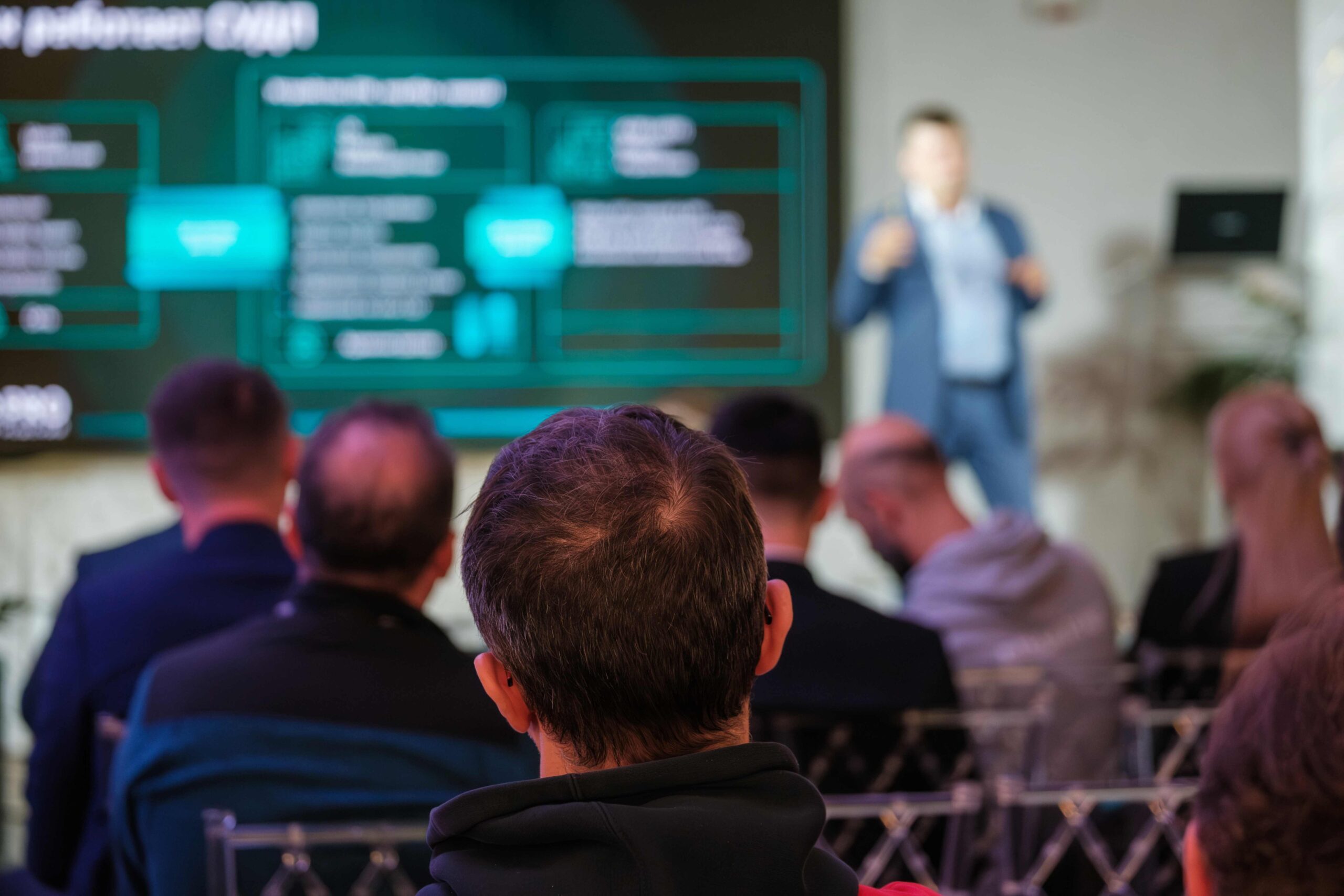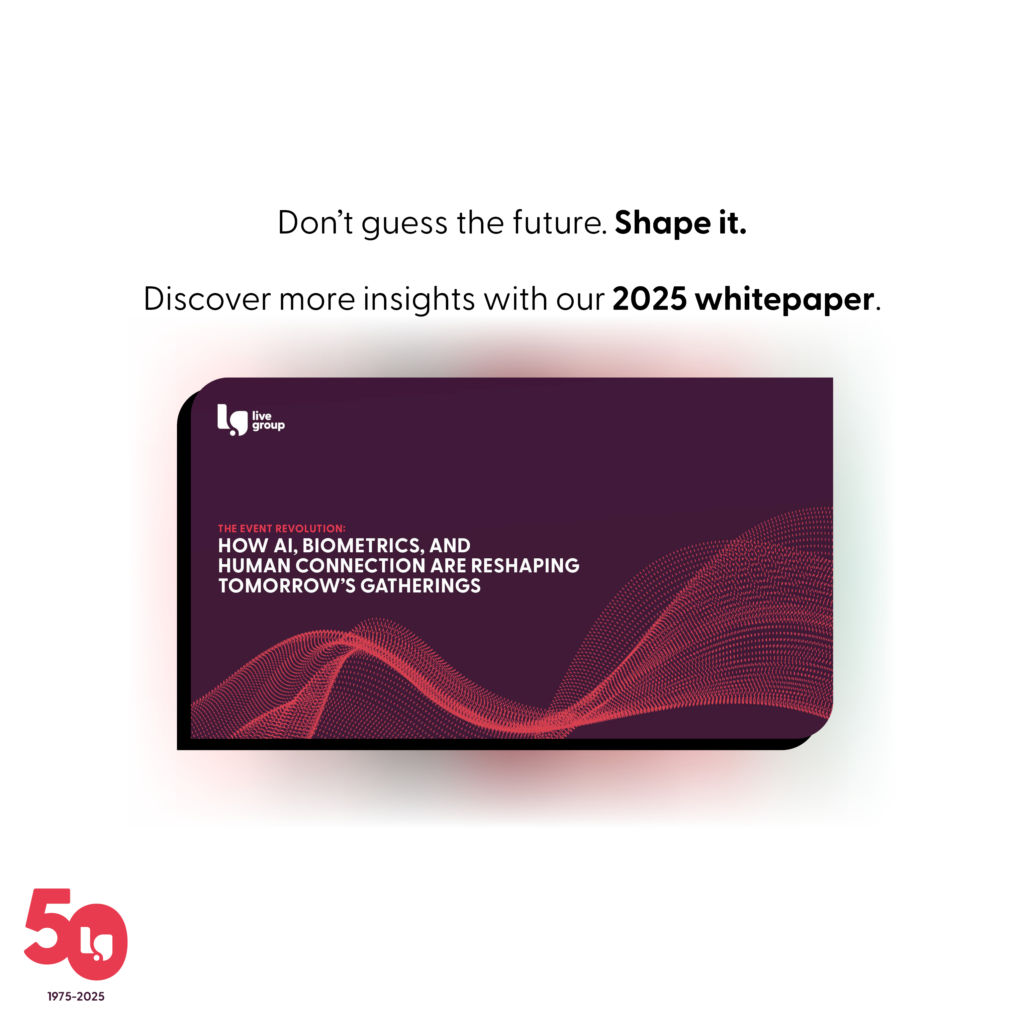From B2B and B2C to H2H: The Event Industry’s Human Revolution
In events, we’ve traditionally categorised strategies into two distinct camps: B2B events (business-to-business events) and B2C events (business-to-consumer events). B2B events were serious, transactional, and ROI-focused; B2C events were lively, emotional, and experience-driven. But today, this division isn’t just outdated – it misses the fundamental truth at the heart of every event: human interaction.
Behind every attendee badge – be it a senior executive at a finance summit, a tech developer at an industry conference, or a consumer at a product launch – is a human being. These individuals bring with them expectations shaped by their personal lives, from the personalised service of Netflix to the intuitive simplicity of Amazon.
This shift towards human-centric experiences marks a critical evolution from traditional categories like what are B2B events and what are B2C events to a Human-to-Human (H2H) approach. Events today must recognise the common humanity and personal expectations of all attendees, irrespective of industry or context. This H2H mindset is not just innovative – it’s now essential.
Why Traditional B2B and B2C Event Dichotomies Fall Short
Historically, B2B events were meticulously crafted around business outcomes: formal networking, lead generation, and knowledge dissemination. B2C events focused on emotional engagement, brand excitement, and immersive entertainment. However, this simplistic dichotomy overlooks that attendees in both contexts are fundamentally the same individuals.
Attendees today have consumer-grade expectations in all aspects of their lives, including their professional experiences. This means they anticipate seamless interactions, personalised content, engaging storytelling, and emotional resonance, regardless of the event’s original purpose.
Embracing the Human-to-Human (H2H) Approach
At its core, the H2H approach recognises that event strategy must start with understanding the audience as people first, professionals second. It involves shifting away from traditional categories such as B2B events and B2C events and instead focusing on what genuinely resonates on a human level – storytelling, emotional engagement, seamless experiences, and personalisation driven by deep empathy and insight.
This doesn’t mean compromising business goals. Rather, it emphasises that genuine connections between people drive more impactful outcomes, from deeper networking and stronger partnerships to increased loyalty and engagement.
Personalisation: A Human Dialogue
Personalisation under the H2H model isn’t just about data or technology – it’s fundamentally about empathy and human understanding. It requires human insight to interpret data meaningfully, crafting experiences that genuinely resonate. The human element is central to effective personalisation: understanding audience motivations, values, and expectations to create relevant, impactful experiences.
Event organisers must leverage human intuition alongside data analytics. This hybrid approach ensures personalisation remains genuine and meaningful, not purely algorithmic. It means curating event experiences that respond to both the expressed and unspoken desires of attendees, creating deeper, human-to-human connections.

Emotional Connection as an Essential Strategy
Emotion is at the heart of every meaningful human interaction. The most memorable events tap into human emotions, not merely business metrics. Whether through inspiring narratives, powerful keynotes, or meaningful interactions, emotional connections transform events into lasting experiences.
By placing emotional engagement at the centre of event strategy, organisers recognise attendees as emotional beings who respond profoundly to experiences that speak authentically to their human side. It moves events beyond transactional exchanges into spaces of genuine human connection and shared experiences.
Human-Centric Digital Experiences
Seamless digital experiences must be human-centric. This means designing every digital interaction – from registration to content access – with an acute awareness of human behaviours and preferences. It’s not simply about slick interfaces; it’s about anticipating human frustrations and creating intuitive, frictionless journeys.
Designing digital experiences with genuine empathy ensures technology serves human needs rather than dictates them. This approach enhances attendee satisfaction, builds trust, and reflects a deep respect for the individual’s time and experience.
Leveraging Data through a Human Lens
Data in an H2H context isn’t about dehumanising attendees into mere statistics. Instead, it involves human insight and interpretation to guide meaningful interactions. Real-time analytics, coupled with human oversight, allow organisers to adapt dynamically, ensuring the event remains relevant and engaging on a personal level.
This human-data synergy ensures that personalisation and interaction remain authentic, respectful, and genuinely engaging, creating experiences that attendees find valuable and personally meaningful.
Implications Across Sectors: H2H is Universal
The shift to an H2H approach impacts every sector, from finance to public-sector organisations, from tech to trade associations. Enterprise clients, even in highly regulated industries, increasingly recognise that connecting with attendees on a human level yields better results – deeper engagement, enhanced loyalty, and stronger relationships.
Even traditionally conservative public-sector events benefit from human-focused storytelling and interactive experiences, reflecting the universal truth that effective communication and engagement start with recognising shared humanity.
The Future: Uniting Strategy and Humanity
Ultimately, embracing the Human-to-Human revolution in events means recognising that every attendee is seeking a meaningful connection. Events must start from a place of human understanding, not traditional B2B events or B2C events classifications. This approach ensures every interaction – from content delivery to personal engagement – is authentically human, deeply resonant, and strategically impactful.
The future of events lies in this human-centric philosophy. Organisations that embrace H2H principles will not just deliver memorable events – they will forge lasting relationships built on genuine human connection, empathy, and understanding. The era of categorising events by rigid industry definitions is ending. The era of meaningful, human-to-human engagement has begun.
B2B events (business-to-business events) are professional gatherings designed to connect companies with other businesses, focusing on networking, lead generation, and knowledge sharing.
B2C events (business-to-consumer events) are designed to engage consumers directly, often focusing on brand experiences, product launches, and emotional engagement.
Because all attendees are humans first, their expectations have shifted towards personalised, emotional, and seamless experiences that go beyond traditional B2B events or B2C events categories.
H2H emphasises creating genuine human connections and personalised experiences at events, focusing on empathy, storytelling, and emotional engagement irrespective of business context.
By combining data analytics with human insight, organisers can craft authentic experiences that resonate with attendees’ motivations and expectations, creating meaningful engagement.
Download our latest report to explore the latest event solutions, learn how event production agencies are leveraging technology for seamless conference planning, and uncover strategies to enhance hybrid event management.






